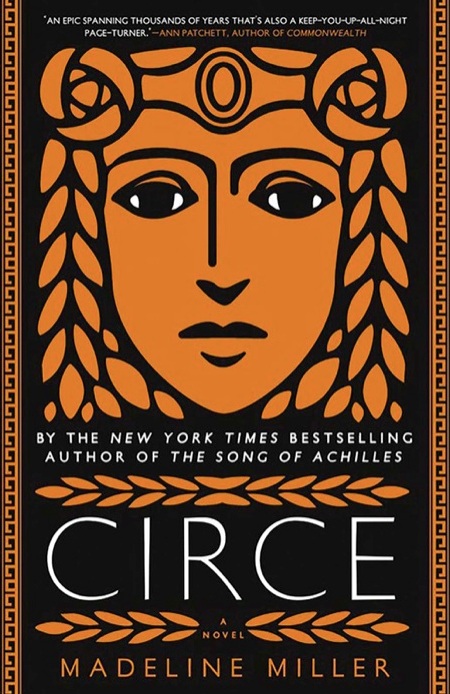Book Summary
Madeline Miller’s Circe transforms Homer’s infamous witch from a footnote in The Odyssey into a fully realized protagonist. Born the daughter of the sun god Helios, Circe is scorned for her mortal-like voice and lack of divine allure. After discovering her gift for witchcraft—a power that threatens the gods—she is exiled to the island of Aiaia. There, she hones her craft, encounters legendary figures like Daedalus and Odysseus, and grapples with her identity between the worlds of gods and mortals. Miller’s prose is lush and immersive, though some readers may find the pacing deliberate in the early chapters.
What begins as a story of isolation evolves into a profound exploration of agency and resilience. Circe’s journey spans millennia, weaving together Greek myths (the Minotaur, Scylla, Prometheus) while centering her emotional growth. The novel’s climax—a confrontation with the monstrous Scylla—culminates in Circe’s hard-won self-acceptance. While the plot is episodic, Miller’s character-driven approach ensures Circe’s evolution feels earned, culminating in a poignant ending that redefines power and belonging.
Key Themes
Feminism and Patriarchy: Circe navigates a world where gods and men alike diminish women. From her father’s neglect to Odysseus’s manipulations, Miller exposes systemic misogyny while allowing Circe to reclaim her narrative. Her witchcraft becomes a metaphor for marginalized voices weaponizing their power. Notably, Circe’s rape by sailors—and her subsequent transformation of men into pigs—challenges victim-blaming tropes, reframing her actions as self-defense rather than villainy.
Transformation and Identity: Literal and metaphorical metamorphoses abound. Circe’s magic reveals others’ “truest selves” (Glaucos’s vanity, Scylla’s monstrosity), mirroring her own journey from meek nymph to self-possessed witch. Her eventual choice to embrace mortality over divinity underscores Miller’s thesis: growth requires vulnerability. The novel critiques the static nature of godhood, celebrating mortal impermanence as a catalyst for empathy and change.
What Makes It Unique
Miller’s genius lies in her synthesis of scholarly rigor and emotional intimacy. Unlike traditional myths that frame Circe as a seductress, this retelling humanizes her through modern psychological depth. The first-person narration immerses readers in Circe’s loneliness, rage, and hard-won wisdom. Miller also subverts epic conventions by focusing on domesticity—spell-making, motherhood, and the quiet labor of survival—elevating them to acts of rebellion.
The novel’s structure mirrors oral storytelling, blending vignettes into a cohesive arc. While some critics argue the middle sags under mythic cameos, these interludes enrich Circe’s worldview. Standout scenes—like her tender mentorship of Telegonus or her chilling confrontation with Athena—showcase Miller’s ability to balance intimacy with grandeur. The result is a myth that feels both ancient and urgently contemporary.
Reader Reactions
Critics praise Miller’s “lyrical prose” and “feminist recalibration” of Greek myths, with The New York Times calling it “a triumph of character over plot.” Many highlight the ending’s emotional payoff: “Circe’s choice to become mortal is the ultimate act of self-definition,” notes one review. However, some readers find the pacing uneven, with the first half leaning heavily on exposition. As one blogger critiques, “The novel takes time to find its rhythm, but once it does, it’s spellbinding.”
Fans particularly resonate with Circe’s relatability. “She’s flawed, furious, and utterly human—even as a goddess,” writes a Goodreads reviewer. The #MeToo era has amplified appreciation for how Miller addresses sexual violence and resilience. Minor critiques include anachronistic dialogue (e.g., post-rape lines like “I will not be prey”) and the underuse of figures like Medea. Yet most agree: this is “mythology made fresh.”
About the Author
Madeline Miller holds BA and MA degrees in Classics from Brown University, with a focus on ancient Greek and Latin literature. A former teacher of Shakespeare and Greek tragedy, she spent a decade researching Circe, drawing from Homer, Ovid, and lesser-known texts like the Telegony. Her debut, The Song of Achilles (2012), reimagined the Iliad through Patroclus’s eyes, winning the Orange Prize. Miller’s academic background shines in her meticulous worldbuilding and thematic depth.
Miller’s fascination with “muted voices” in classical texts directly informs Circe. As she stated in interviews, Circe’s marginality in The Odyssey made her an ideal vehicle to explore themes of power and otherness. Miller’s upbringing—immersed in museum trips and myth collections—grounds her ability to make antiquity accessible. She currently teaches and writes in Philadelphia, with an HBO Circe adaptation in development.
Memorable Quotes
“Humbling women seems to me a chief pastime of poets. As if there can be no story unless we crawl and weep.” — Circe’s rebuke of patriarchal mythmaking, reflecting Miller’s feminist lens.
“When I was born, the name for what I was did not exist.” — The opening line, encapsulating Circe’s outsider status and the novel’s project of redefinition.
